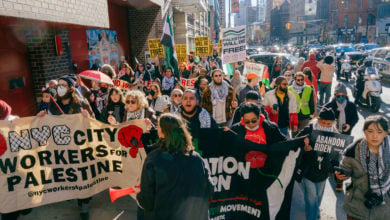The number of officially unemployed citizens has ballooned to a staggering 10.1 million, and working people are running out of options to make ends meet. The mortgage crisis has played a significant role in the broader economic slump, and many people continue to lose their homes due to loss of jobs, predatory lending practices, falling home prices and health-related expenses. But now a new crisis looms and again workers will bear the brunt of it—a credit card debt squeeze.
|
The looming crisis will widely affect banks and credit card companies, but working people will again face the sharpest pain. American Express is set to increase effective interest rates from 15 to 18 percent. Another practice that adversely affects workers is the lowering of credit limits. This practice will lower credit scores and affect workers trying to get credit elsewhere, including securing mortgages.
Because of falling consumer confidence, retailers are now bracing for an abysmal holiday season. Workers who have lost their jobs or fear unemployment are cutting corners wherever possible. In response, retailers will be offering promotions enticing workers to spend money they do not have. The ultimate pursuit of any retailer is profit—the cornerstone of capitalism—regardless of the aches and pains placed on workers.
The United States government recently cut the largest check in history to bail out Wall Street, but there has been no significant bailout offered for workers. Similar to calling for a moratorium on foreclosures, revolutionaries and progressives need to call for banks and credit card companies to recognize their losses instead of squeezing the workers for money they do not have. We demand a bailout for workers, not banks!







